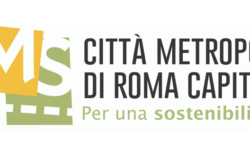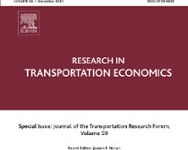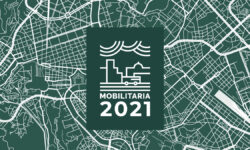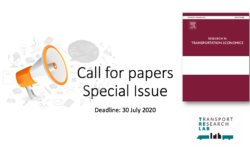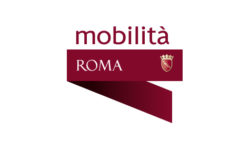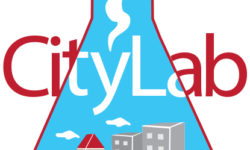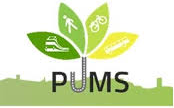Activities
Living Lab Logistica: il caso del PMLS
Software L-3D
Lyon–Turin High–Speed rail project: a careful review of the past evaluations
Wireless charging systems for electric vehicles – a critical review of the dynamic charging feasibility
Riparte il LLL: TRElab incontra RSM e CORRO
In data 31/08/2021 si è svolta la riunione trilaterale del Living Lab al quale hanno partecipato TRElab, Roma Servizi per la Mobilità e CORRO, operatore logistico capitolino. Gli attori hann…
Analyzing Tourists’ Preferences: Milan’s waterway case
The 2020 Italian Spring Lockdown: A Multidisciplinary Analysis over the Milan Urban Area
New study for the EU Parliament on aviation
Rapporto MobilitAria 2021: il focus su Roma
TRElab joins the International Encyclopedia of Transportation
TRElab’s Special Issue “Sustainable City Logistics and Innovation” released!
Active travel and urban policy: an overview of Europe and Italy
Post-Covid19 Supply chains: call for papers on Research in Transportation economics by TRElab
TRElab seminar: “Oltre la Torino-Lione: l’analisi costi benefici dopo il 2019” – 06/12/2019
TRElab Seminar: “End-to-End supply chain” (04/12/2019)
Seminar: “Freight and Service Activity Generation Models in Urban Areas” Speaker: Amedeo Nanni (MSD Italia) The management of the distribution chain with the E2E, or end-to-end m…
Estimation of consistent Logit and Probit models using best, worst and best–worst choices
The paper considers random utility models that use a single common vector of random utilities for the computation of best, worst and best–worst choice probabilities, i.e. consistent models. …
Crowdshipping: il potenziale di un sistema di consegna alternativo
Sustainable urban freight transport adopting public transport-based crowdshipping for B2C deliveries
Cities crave innovative logistics solutions dealing with the requirements of the ‘on demand economy’. The paper estimates the willingness to act as a crowdshipper (supply) and to buy a crowd…
Planning with stakeholders: Analysing alternative off-hour delivery solutions via an interactive multi-criteria approach
Many cities of different size and in different areas of the world have successfully tested the introduction of off-hour deliveries (OHD) on a voluntary basis, reporting positive effects, bot…
SUMP as a tool for sustainable mobility in Ischia
TRElab and the assocation Legambiente Isola d’Ischia organized a public meeting concerning the SUMP (Sustainable Urban Mobility Plan) as a tool for sustainable mobility. The event was …
Cyclelogistics, enterprise and development: the Italian case
This report is based on the Bachelor thesis of Edoardo Repetto. In his work he analyzes the development of cyclelogistics enterprises in Italy. The hypothesis is that this sector has not de…
Rome Logistics Living Lab – Cargo bike
Rome SUMP – Logistics Living Lab
To pursue the objectives identified by the Sustainable Urban Mobility Plan of the city of Rome, the rationalization of urban logistics intends to harmonize the supply needs necessary to incr…
Innovative solutions to freight distribution in the complex large urban area of Rome
Development economics
Course for: Bachelor students ECTS: 8 Description: The course gives a synthetic but complete understanding of economic growth and development. Specifically, it provides its students with a c…
Transport economics
Course for: Master students ECTS: 7 Description: The course aims at deepening the knowledge of instruments of instruments of economic analysis applied to the transport sector. It will provid…
E-Commerce and urban distribution of goods. Parcel locker as a last mile solution
Valerio Pacelli, a student of the TRElab, investigated the use of parcel lockers as a last mile delivery solution. The full report in Italian can be downloaded. This study analyzes the Autom…
Development of rail freight transport between China and Europe in the framework of the Belt and Road initiative
This report was prepared by Andrea Antoccia, a student of the University of Roma Tre. Following is the abstract of the paper. The full document can be downloaded in Italian. The paper examin…
Presentations and videos of the NECTAR workshop, March 22/23 2019
The presentations and videos from the NECTAR workshop on “Transport Infrastructures: Investments, Evaluation and Regional Economic Growth” (22/23 March 2019) are now available. The work…
LLL – Introducing the second project: “Stalli tecnologici”
The second project of the LLL of Rome concerns the promotion of technological loading areas. This is part of the plan for the development of areas of loading and unloading bays foreseen by t…
Crowdshipping: critical points of a promising sustainable urban freight system
The following is a brief summary of the Master thesis of Marco Ferrari, a student of the University of Roma Tre. The thesis was supervised by TRELab director Valerio Gatta and Ila Maltese. T…
ShareLab – Sharing Economy in a Living Lab
Cities are net importers of goods. Ensuring a high level of quality of life for citizens, from an economic and socio-cultural point of view, implies creating an efficient and sustainable sys…
I-CROWD4FR8 – Integrated-CROWDshipping for FReight transport
The research program aimed to analyze the conditions of development and the levers that can promote the dissemination of crowdshipping, understood as the use of the “crowd” (crow…
Public Transport-Based Crowdshipping for Sustainable City Logistics: Assessing Economic and Environmental Impacts
This paper aims at understanding and evaluating the environmental and economic impacts of a crowdshipping platform in urban areas. The investigation refers to the city of Rome and considers …
TRElab Seminar: “Freight and Service Activity Generation Models in Urban Areas”
Seminar: “Freight and Service Activity Generation Models in Urban Areas” Speaker: Diana Ramirez-Rios (Rensselaer Polytechnic Institute, in Transportation Engineering) To understa…
Urban freight and behaviour change
Course for: PhD students ECTS: 4 Description: This course learns how to define, design and evaluate urban freight policies capable of adequately responding to the sustainability challenges u…
Sustainability, Economic Development and Transport
Course for: Master students ECTS: 8 Description: This course focuses on the sustainability of development patterns. Environmental quality and economic vitality are discussed with a particula…
TRElab Seminar: “Modelling time allocation with discrete-continuous models”
Seminar: “Modelling time allocation with discrete-continuous models” Speaker: Chiara Calastri (Choice Modelling Centre and Institute for Transport Studies University of Leeds, UK…
TRElab Seminar: “Freight trip generation: methods and applications”
Seminar: “Freight trip generation: methods and applications” Speaker: Iván Sánchez-Díaz (Division of Service Management and Logistics, Chalmers University of Technology, Sweden) …
SEFIRA
CITYLAB
SUMP Perugia
Special Issue: Urban freight distribution, land use planning and public administration strategies
Well-being and economic growth are strictly correlated. Cities are the engines of an innovation-based economy where research and new ideas are the core input of production. Urbanisation is b…
Special Issue: Urban policy, freight distribution and behaviour change: stakeholders’ engagement, perception and reaction
Freight transport systems are fundamental to guarantee urban sustainable development. In fact, their role is essential in harmonising economic growth while minimising territorial externaliti…
Integrating direct and reverse logistics in a “living lab” context: evaluating stakeholder acceptability and the potential of gamification to foster sustainable urban freight transport
The chapter tests stakeholder acceptability and their likely behavior change with respect to innovative solutions for improving urban freight transport efficiency and fostering city sustaina…
European urban freight transport policies and research funding: are priorities and H2020 calls aligned?
The European Commission (EC) has recently developed a growing awareness and interest with respect to the challenges urban freight transport (UFT) poses. Consequently, the EC has started defi…
Quali sono gli effetti del pagamento del parcheggio sulla scelta modale dei lavoratori? Implicazioni sulle politiche dei trasporti
La gamification per favorire il coinvolgimento e il cambio di comportamento degli stakeholder della logistica urbana
Sustainable crowdshipping using public transport: a case study evaluation in Rome
The paper analyses the willingness to act as a crowdshipper in the case of a last mile B2C e-commerce for pick up/delivery. Specifically, it focuses on crowdshipping services deployed using …
Analisi ex-ante dell’accettabilità e stima dello shift modale di un sistema di road pricing: il caso di Roma
Large cities like London, Stockholm and Milan have adopted traffic policies for their central areas based on charges applying to the inbound car traffic. The paper, after a comparative revie…
Willingness to pay measures to tailor policies and foster stakeholder acceptability in urban freight transport
Policy-making on Urban Freight Transport (UFT) is complex because it requires dealing with heterogeneous stakeholders with different objectives. The often unforeseen and undesired results de…
Special Issue: Freight Behaviour Research
The importance of freight systems to modern economies and as a major source of externalities necessitates achieving a judicious balance between these important aspects. Inducing behavioural …
Special Issue: Urban freight policy innovation: assessment methods
It is foreseen that this Special Issue will lead to an improved understanding of the various policy assessment tools that can be used when evaluating freight systems and supply chains interv…
Special Issue: Urban freight policy innovation: case studies
The main emphasis of the Special Issue is on gaining a deeper comprehension of the policies capable of influencing practices and measuring policy achievements with respect to the objectives …
Using Repeated-Measurement Stated Preference Data to Investigate Users’ Attitudes Towards Automated Buses Within Major Facilities
The paper reports on the results of an investigation about users’ attitudes towards automated and conventional minibuses for routes within major facilities. A common stated preference questi…
Connected shared mobility for passengers and freight: Investigating the potential of crowdshipping in urban areas
Passengers and freight mobility in urban areas represents an increasingly relevant component of modern city life. On one side, it fosters economic growth, but, on the other, it also generate…
Smart urban freight planning process: integrating desk, living lab and modelling approaches in decision-making
This paper proposes an innovative approach to decision-making processes for urban freight planning that could easily be transferred across cities while capable of jointly taking into account…
Investigating the potential for off-hour deliveries in the city of Rome: Retailers’ perceptions and stated reactions
This paper investigates the potential for off-hour deliveries in the city of Rome. It focuses on retailers that play a fundamental role in the decision making process often determining deliv…
Simulating participatory urban freight transport policy-making: Accounting for heterogeneous stakeholders’ preferences and interaction effects
This paper proposes a novel approach to support participatory decision-making processes in the context of urban freight transport through the integration of discrete choice modeling and agen…
Towards a decision-support procedure to foster stakeholder involvement and acceptability of urban freight transport policies
This paper addresses the complex problem of multi-stakeholder decisions in urban freight transport policy-making from a public authority perspective, by proposing a procedure based on a mode…
Role-playing games as a mean to validate agent-based models: an application to stakeholder-driven urban freight transport policy-making
Agent-based models (ABMs) are widely used to replicate transport environments accounting for interaction among stakeholders. Validation of ABMs implies assessing the extent to which the mode…
Measuring the effects of an urban freight policy package defined via a collaborative governance model
In recent years the European Commission has increasingly focused its attention on the development of sustainable city logistics by promulgating legislation and formal directives. Despite the…
Come valutare l’accettabilità delle politiche sulla logistica urbana? Integrazione di modelli di scelta discreta e modelli basati sull’agente
Le politiche per la mobilità urbana sostenibile. Le sfide del futuro
About 70% of the continent’s population lives in European cities; here over 80% of total GDP is generated; about 23% of total CO2 emissions are produced by the transport sector and con…
A behavioral assessment of parking and pricing urban freight transport policies
Decision makers in urban goods movement (UGM) typically need to assess the impact new policy interventions might have on freight distribution. The effects of policy changes are inextricably …
Behavioural implications of non-linear effects on urban freight transport policies: The case of retailers and transport providers in Rome
Cities import goods and freight transport is essential. However, it also generates social costs. Ensuring efficient urban freight transport is important although difficult. Policy makers int…
How good are retailers in predicting transport providers’ preferences for urban freight policies?… and vice versa?
The success or failure of urban freight transport measures crucially depends on local policy makers’ knowledge and awareness of stakeholders’ preferences. The behavioral approach calls for s…
Modelling individual preferences for environmental policy drivers: Empirical evidence of Italian lifestyle changes using a latent class
Degraded air quality severely affects the health of citizens worldwide. The design of effective policies requires exploring public preferences for environmental and air quality policy instru…
Investigating users’ attitudes towards conventional and automated buses in twelve European cities
Driverless buses running in urban low-speed, mixed-traffic conditions are the subject of current research and demonstration in Europe. The paper aims to assess how automation fares with resp…
The Geographies of Air Transport
The book edited by Goetz and Budd represents a timely contribution with respect to an important and critical industrial sector for economic development and well being throughout the world. I…
Urban freight, parking and pricing policies: an evaluation from a transport providers & perspective
This paper investigates transport providers’ preferences for alternative loading bays and pricing policies. It estimates the importance of loading bays, the probability of finding them free …
On finite sample performance of confidence intervals methods for willingness to pay measures
This paper systematically compares finite sample performances of methods to build confidence intervals for willingness to pay measures in a choice modeling context. It contributes to the fie…
Stakeholder-specific data acquisition and urban freight policy evaluation: evidence, implications and new suggestions
Cities, characterised by scarce resources and facing increasing citizens’ requests for more liveable and attractive environments, need to define and implement more efficient urban freight tr…
Regulating Transport in Europe
This article concerns the regulation of transport within a European context, covering air, inland waterways, rail, road passenger and freight, urban public transport, and short sea shipping….
Special Issue: Measuring Service Quality and Local Public Transport Performance
The articles included in this special issue investigate new tools and approaches to assess the service quality and performance of local public transport. The contributions target different l…
De Gustibus Disputandum Est: Non-Linearity in Public Transportation Service Quality Evaluation
User perceptions of service quality are essential to promote public transport ridership and trigger positive externalities. Therefore, research efforts need to analyze service quality from t…
Behavioral modeling in urban freight transport
Decision makers in urban goods movement (UGM) typically need to assess the impact new policy interventions might have on freight distribution. The effects of policy changes are inextricably …
Urban freight transport policy changes: improving decision makers’ awareness via an agent-specific approach
This paper derives policy implications from agent-specific data with respect to the implementation of policy changes in the case of urban freight transport. In particular, the research, base…
Logistics managers’ stated preferences for freight service attributes: a comparative research method analysis
This chapter reviews a set of articles, based on stated preferences techniques, focusing on logistics managers’ preferences for freight transport attributes with the intent of assessin…
Urban freight transport modelling: an agent-specific approach
The book describes techniques useful in forecasting and aptimizing urban freight movements. Policy interventions often yield unsatisfactory results because insufficient attention is paid to …
Intra-agent heterogeneity in urban freight distribution: the case of own-account operators
Urban freight distribution policies aim to improve the efficiency of deliveries of goods in cities. Local policy makers intervene on rooted, complex and pre-existent relationships. Various a…
Special Issue: Freight Transport : Data, Models, and Policies. Challenges and future perspectives
The main aim of the Journal is to bring together the research work being done in the field of Transport Economics and arrange it organically in the form of a synthesis between theory and fac…
Special Issue: Freight transport analysis: new trends and methodologies
The present special issue is based on papers presented at the Interdepartmental Centre for Research on the Economics of Institutions (CREI) workshop on Transport choice analysis: models and …
Multi-level governance and transport policy: the case of local roads in Italy
Italy is a multi-level polity where policymaking and implementation involves both public and private actors. Both territorial and functional decentralisation have an impact on the final resu…
Testing for nonlinearity in the choice of a freight transport service
Manufacturing firms buy transport services with the aim of minimizing their total logistics cost. There is a large amount of literature analyzing how shippers value the various characteristi…
A medium term evaluation of the Ecopass road pricing scheme in Milan: economic, environmental, and transport impacts
The aim of this paper is to provide an economic, environmental and transport evaluation of the Ecopass scheme implemented since January 2008 in Milan. Building on previous evaluation, this p…
Energy Efficiency in the Transport Sector: Policy Evolution in some European Countries
In the last years Energy Efficiency (EE) has become an important issue in the public policy makers’ agenda due to ambitious objectives of the European Commission to reduce energy consumption…
Special Issue: Stated Preferences: Methodological novelties and new issues in transport
Introduction to the Special Issue on “Stated Preferences: Methodological Novelties and New Issues in Transport”. The special issue consists of selected papers from a special sess…
Stakeholder reactions to urban freight policy innovation
Urban freight policies aim to minimise negative economic and environmental impact of freight movement in cities. At present, sustainable urban freight management is often hampered by a lack …
Local public transport: service quality and tendering contracts
Public transport is of extreme relevance for ensuring a sustainable modal distribution in urban areas across the globe (Hensher 2007). Local Public Transport (LPT) policies generally promote…
Dissecting preference heterogeneity in consumer stated choices
This paper investigates alternative methods to account for preference heterogeneity in choice experiments. Heterogeneity can be explained by assuming its influence to impact the systematic c…
A Stated Ranking Experiment to Study Policy Acceptance: The Case of Freight Operators in Rome’s LTZ
City logistics require an understanding of a number of issues that are seldom accounted for in current research. Policies may produce unsatisfactory results because behavioural and contextua…
Regional airport choice: consumer behaviour and policy implications
The analysis of origin airports in multi-airport regions has a well established tradition in transportation and regional economics. The main goal of the paper is to estimate the importance o…
Urban freight policy innovation for Rome’s LTZ: a stakeholder perspective
This chapter contributes to the understanding of practical issues relating to stakeholder evaluation of urban freight policies. The empirical section of the chapter presents evidence from st…
Comparing single and joint preferences: a choice experiment on residential location in three-member householders
There is growing evidence indicating that there can be significant differences between choices made by single individuals and those made by the same individuals when choosing collectively. T…
The Urban Road Pricing Scheme to Curb Pollution in Milan, Italy: Description, Impact and Preliminary Cost-Benefit Analysis Assessment
Starting from January 2008 Milan implemented a charging scheme to enter an 8 km2 area of the city centre. The term used to denote the scheme is Ecopass, conveying the stated political object…
Urban freight policies and distribution channels
Urban areas are vital centers of economic activity and innovation generating large economies of density and proximity. Yet, procuring and distributing goods in an urban context is fraught wi…
Environmental quality and accessibility trade-offs in household residential location choice: a test of the representative member hypothesis and relative power analysis
The paper illustrates a method to detect and estimate interaction effects in household decision-making and tests the representative member hypothesis by studying how preferences of single me…
Urban Freight Modelling and Policy Analysis
This paper describes the most frequently used urban freight policies with the aim of analysing: their characteristics, and the likely impacts, the proper level of analysis of the phenomenon,…
Living Lab Logistica: il caso del PMLS
Software L-3D
Lyon–Turin High–Speed rail project: a careful review of the past evaluations
Wireless charging systems for electric vehicles – a critical review of the dynamic charging feasibility
Riparte il LLL: TRElab incontra RSM e CORRO
In data 31/08/2021 si è svolta la riunione trilaterale del Living Lab al quale hanno partecipato TRElab, Roma Servizi per la Mobilità e CORRO, operatore logistico capitolino. Gli attori hann…
Analyzing Tourists’ Preferences: Milan’s waterway case
The 2020 Italian Spring Lockdown: A Multidisciplinary Analysis over the Milan Urban Area
New study for the EU Parliament on aviation
Rapporto MobilitAria 2021: il focus su Roma
TRElab joins the International Encyclopedia of Transportation
TRElab’s Special Issue “Sustainable City Logistics and Innovation” released!
Active travel and urban policy: an overview of Europe and Italy
Post-Covid19 Supply chains: call for papers on Research in Transportation economics by TRElab
TRElab seminar: “Oltre la Torino-Lione: l’analisi costi benefici dopo il 2019” – 06/12/2019
TRElab Seminar: “End-to-End supply chain” (04/12/2019)
Seminar: “Freight and Service Activity Generation Models in Urban Areas” Speaker: Amedeo Nanni (MSD Italia) The management of the distribution chain with the E2E, or end-to-end m…
Estimation of consistent Logit and Probit models using best, worst and best–worst choices
The paper considers random utility models that use a single common vector of random utilities for the computation of best, worst and best–worst choice probabilities, i.e. consistent models. …
Crowdshipping: il potenziale di un sistema di consegna alternativo
Sustainable urban freight transport adopting public transport-based crowdshipping for B2C deliveries
Cities crave innovative logistics solutions dealing with the requirements of the ‘on demand economy’. The paper estimates the willingness to act as a crowdshipper (supply) and to buy a crowd…
Planning with stakeholders: Analysing alternative off-hour delivery solutions via an interactive multi-criteria approach
Many cities of different size and in different areas of the world have successfully tested the introduction of off-hour deliveries (OHD) on a voluntary basis, reporting positive effects, bot…
SUMP as a tool for sustainable mobility in Ischia
TRElab and the assocation Legambiente Isola d’Ischia organized a public meeting concerning the SUMP (Sustainable Urban Mobility Plan) as a tool for sustainable mobility. The event was …
Cyclelogistics, enterprise and development: the Italian case
This report is based on the Bachelor thesis of Edoardo Repetto. In his work he analyzes the development of cyclelogistics enterprises in Italy. The hypothesis is that this sector has not de…
Rome Logistics Living Lab – Cargo bike
Rome SUMP – Logistics Living Lab
To pursue the objectives identified by the Sustainable Urban Mobility Plan of the city of Rome, the rationalization of urban logistics intends to harmonize the supply needs necessary to incr…
Innovative solutions to freight distribution in the complex large urban area of Rome
Development economics
Course for: Bachelor students ECTS: 8 Description: The course gives a synthetic but complete understanding of economic growth and development. Specifically, it provides its students with a c…
Transport economics
Course for: Master students ECTS: 7 Description: The course aims at deepening the knowledge of instruments of instruments of economic analysis applied to the transport sector. It will provid…
E-Commerce and urban distribution of goods. Parcel locker as a last mile solution
Valerio Pacelli, a student of the TRElab, investigated the use of parcel lockers as a last mile delivery solution. The full report in Italian can be downloaded. This study analyzes the Autom…
Development of rail freight transport between China and Europe in the framework of the Belt and Road initiative
This report was prepared by Andrea Antoccia, a student of the University of Roma Tre. Following is the abstract of the paper. The full document can be downloaded in Italian. The paper examin…
Presentations and videos of the NECTAR workshop, March 22/23 2019
The presentations and videos from the NECTAR workshop on “Transport Infrastructures: Investments, Evaluation and Regional Economic Growth” (22/23 March 2019) are now available. The work…
LLL – Introducing the second project: “Stalli tecnologici”
The second project of the LLL of Rome concerns the promotion of technological loading areas. This is part of the plan for the development of areas of loading and unloading bays foreseen by t…
Crowdshipping: critical points of a promising sustainable urban freight system
The following is a brief summary of the Master thesis of Marco Ferrari, a student of the University of Roma Tre. The thesis was supervised by TRELab director Valerio Gatta and Ila Maltese. T…
ShareLab – Sharing Economy in a Living Lab
Cities are net importers of goods. Ensuring a high level of quality of life for citizens, from an economic and socio-cultural point of view, implies creating an efficient and sustainable sys…
I-CROWD4FR8 – Integrated-CROWDshipping for FReight transport
The research program aimed to analyze the conditions of development and the levers that can promote the dissemination of crowdshipping, understood as the use of the “crowd” (crow…
Public Transport-Based Crowdshipping for Sustainable City Logistics: Assessing Economic and Environmental Impacts
This paper aims at understanding and evaluating the environmental and economic impacts of a crowdshipping platform in urban areas. The investigation refers to the city of Rome and considers …
TRElab Seminar: “Freight and Service Activity Generation Models in Urban Areas”
Seminar: “Freight and Service Activity Generation Models in Urban Areas” Speaker: Diana Ramirez-Rios (Rensselaer Polytechnic Institute, in Transportation Engineering) To understa…
Urban freight and behaviour change
Course for: PhD students ECTS: 4 Description: This course learns how to define, design and evaluate urban freight policies capable of adequately responding to the sustainability challenges u…
Sustainability, Economic Development and Transport
Course for: Master students ECTS: 8 Description: This course focuses on the sustainability of development patterns. Environmental quality and economic vitality are discussed with a particula…
TRElab Seminar: “Modelling time allocation with discrete-continuous models”
Seminar: “Modelling time allocation with discrete-continuous models” Speaker: Chiara Calastri (Choice Modelling Centre and Institute for Transport Studies University of Leeds, UK…
TRElab Seminar: “Freight trip generation: methods and applications”
Seminar: “Freight trip generation: methods and applications” Speaker: Iván Sánchez-Díaz (Division of Service Management and Logistics, Chalmers University of Technology, Sweden) …
SEFIRA
CITYLAB
SUMP Perugia
Special Issue: Urban freight distribution, land use planning and public administration strategies
Well-being and economic growth are strictly correlated. Cities are the engines of an innovation-based economy where research and new ideas are the core input of production. Urbanisation is b…
Special Issue: Urban policy, freight distribution and behaviour change: stakeholders’ engagement, perception and reaction
Freight transport systems are fundamental to guarantee urban sustainable development. In fact, their role is essential in harmonising economic growth while minimising territorial externaliti…
Integrating direct and reverse logistics in a “living lab” context: evaluating stakeholder acceptability and the potential of gamification to foster sustainable urban freight transport
The chapter tests stakeholder acceptability and their likely behavior change with respect to innovative solutions for improving urban freight transport efficiency and fostering city sustaina…
European urban freight transport policies and research funding: are priorities and H2020 calls aligned?
The European Commission (EC) has recently developed a growing awareness and interest with respect to the challenges urban freight transport (UFT) poses. Consequently, the EC has started defi…
Quali sono gli effetti del pagamento del parcheggio sulla scelta modale dei lavoratori? Implicazioni sulle politiche dei trasporti
La gamification per favorire il coinvolgimento e il cambio di comportamento degli stakeholder della logistica urbana
Sustainable crowdshipping using public transport: a case study evaluation in Rome
The paper analyses the willingness to act as a crowdshipper in the case of a last mile B2C e-commerce for pick up/delivery. Specifically, it focuses on crowdshipping services deployed using …
Analisi ex-ante dell’accettabilità e stima dello shift modale di un sistema di road pricing: il caso di Roma
Large cities like London, Stockholm and Milan have adopted traffic policies for their central areas based on charges applying to the inbound car traffic. The paper, after a comparative revie…
Willingness to pay measures to tailor policies and foster stakeholder acceptability in urban freight transport
Policy-making on Urban Freight Transport (UFT) is complex because it requires dealing with heterogeneous stakeholders with different objectives. The often unforeseen and undesired results de…
Special Issue: Freight Behaviour Research
The importance of freight systems to modern economies and as a major source of externalities necessitates achieving a judicious balance between these important aspects. Inducing behavioural …
Special Issue: Urban freight policy innovation: assessment methods
It is foreseen that this Special Issue will lead to an improved understanding of the various policy assessment tools that can be used when evaluating freight systems and supply chains interv…
Special Issue: Urban freight policy innovation: case studies
The main emphasis of the Special Issue is on gaining a deeper comprehension of the policies capable of influencing practices and measuring policy achievements with respect to the objectives …
Using Repeated-Measurement Stated Preference Data to Investigate Users’ Attitudes Towards Automated Buses Within Major Facilities
The paper reports on the results of an investigation about users’ attitudes towards automated and conventional minibuses for routes within major facilities. A common stated preference questi…
Connected shared mobility for passengers and freight: Investigating the potential of crowdshipping in urban areas
Passengers and freight mobility in urban areas represents an increasingly relevant component of modern city life. On one side, it fosters economic growth, but, on the other, it also generate…
Smart urban freight planning process: integrating desk, living lab and modelling approaches in decision-making
This paper proposes an innovative approach to decision-making processes for urban freight planning that could easily be transferred across cities while capable of jointly taking into account…
Investigating the potential for off-hour deliveries in the city of Rome: Retailers’ perceptions and stated reactions
This paper investigates the potential for off-hour deliveries in the city of Rome. It focuses on retailers that play a fundamental role in the decision making process often determining deliv…
Simulating participatory urban freight transport policy-making: Accounting for heterogeneous stakeholders’ preferences and interaction effects
This paper proposes a novel approach to support participatory decision-making processes in the context of urban freight transport through the integration of discrete choice modeling and agen…
Towards a decision-support procedure to foster stakeholder involvement and acceptability of urban freight transport policies
This paper addresses the complex problem of multi-stakeholder decisions in urban freight transport policy-making from a public authority perspective, by proposing a procedure based on a mode…
Role-playing games as a mean to validate agent-based models: an application to stakeholder-driven urban freight transport policy-making
Agent-based models (ABMs) are widely used to replicate transport environments accounting for interaction among stakeholders. Validation of ABMs implies assessing the extent to which the mode…
Measuring the effects of an urban freight policy package defined via a collaborative governance model
In recent years the European Commission has increasingly focused its attention on the development of sustainable city logistics by promulgating legislation and formal directives. Despite the…
Come valutare l’accettabilità delle politiche sulla logistica urbana? Integrazione di modelli di scelta discreta e modelli basati sull’agente
Le politiche per la mobilità urbana sostenibile. Le sfide del futuro
About 70% of the continent’s population lives in European cities; here over 80% of total GDP is generated; about 23% of total CO2 emissions are produced by the transport sector and con…
A behavioral assessment of parking and pricing urban freight transport policies
Decision makers in urban goods movement (UGM) typically need to assess the impact new policy interventions might have on freight distribution. The effects of policy changes are inextricably …
Behavioural implications of non-linear effects on urban freight transport policies: The case of retailers and transport providers in Rome
Cities import goods and freight transport is essential. However, it also generates social costs. Ensuring efficient urban freight transport is important although difficult. Policy makers int…
How good are retailers in predicting transport providers’ preferences for urban freight policies?… and vice versa?
The success or failure of urban freight transport measures crucially depends on local policy makers’ knowledge and awareness of stakeholders’ preferences. The behavioral approach calls for s…
Modelling individual preferences for environmental policy drivers: Empirical evidence of Italian lifestyle changes using a latent class
Degraded air quality severely affects the health of citizens worldwide. The design of effective policies requires exploring public preferences for environmental and air quality policy instru…
Investigating users’ attitudes towards conventional and automated buses in twelve European cities
Driverless buses running in urban low-speed, mixed-traffic conditions are the subject of current research and demonstration in Europe. The paper aims to assess how automation fares with resp…
The Geographies of Air Transport
The book edited by Goetz and Budd represents a timely contribution with respect to an important and critical industrial sector for economic development and well being throughout the world. I…
Urban freight, parking and pricing policies: an evaluation from a transport providers & perspective
This paper investigates transport providers’ preferences for alternative loading bays and pricing policies. It estimates the importance of loading bays, the probability of finding them free …
On finite sample performance of confidence intervals methods for willingness to pay measures
This paper systematically compares finite sample performances of methods to build confidence intervals for willingness to pay measures in a choice modeling context. It contributes to the fie…
Stakeholder-specific data acquisition and urban freight policy evaluation: evidence, implications and new suggestions
Cities, characterised by scarce resources and facing increasing citizens’ requests for more liveable and attractive environments, need to define and implement more efficient urban freight tr…
Regulating Transport in Europe
This article concerns the regulation of transport within a European context, covering air, inland waterways, rail, road passenger and freight, urban public transport, and short sea shipping….
Special Issue: Measuring Service Quality and Local Public Transport Performance
The articles included in this special issue investigate new tools and approaches to assess the service quality and performance of local public transport. The contributions target different l…
De Gustibus Disputandum Est: Non-Linearity in Public Transportation Service Quality Evaluation
User perceptions of service quality are essential to promote public transport ridership and trigger positive externalities. Therefore, research efforts need to analyze service quality from t…
Behavioral modeling in urban freight transport
Decision makers in urban goods movement (UGM) typically need to assess the impact new policy interventions might have on freight distribution. The effects of policy changes are inextricably …
Urban freight transport policy changes: improving decision makers’ awareness via an agent-specific approach
This paper derives policy implications from agent-specific data with respect to the implementation of policy changes in the case of urban freight transport. In particular, the research, base…
Logistics managers’ stated preferences for freight service attributes: a comparative research method analysis
This chapter reviews a set of articles, based on stated preferences techniques, focusing on logistics managers’ preferences for freight transport attributes with the intent of assessin…
Urban freight transport modelling: an agent-specific approach
The book describes techniques useful in forecasting and aptimizing urban freight movements. Policy interventions often yield unsatisfactory results because insufficient attention is paid to …
Intra-agent heterogeneity in urban freight distribution: the case of own-account operators
Urban freight distribution policies aim to improve the efficiency of deliveries of goods in cities. Local policy makers intervene on rooted, complex and pre-existent relationships. Various a…
Special Issue: Freight Transport : Data, Models, and Policies. Challenges and future perspectives
The main aim of the Journal is to bring together the research work being done in the field of Transport Economics and arrange it organically in the form of a synthesis between theory and fac…
Special Issue: Freight transport analysis: new trends and methodologies
The present special issue is based on papers presented at the Interdepartmental Centre for Research on the Economics of Institutions (CREI) workshop on Transport choice analysis: models and …
Multi-level governance and transport policy: the case of local roads in Italy
Italy is a multi-level polity where policymaking and implementation involves both public and private actors. Both territorial and functional decentralisation have an impact on the final resu…
Testing for nonlinearity in the choice of a freight transport service
Manufacturing firms buy transport services with the aim of minimizing their total logistics cost. There is a large amount of literature analyzing how shippers value the various characteristi…
A medium term evaluation of the Ecopass road pricing scheme in Milan: economic, environmental, and transport impacts
The aim of this paper is to provide an economic, environmental and transport evaluation of the Ecopass scheme implemented since January 2008 in Milan. Building on previous evaluation, this p…
Energy Efficiency in the Transport Sector: Policy Evolution in some European Countries
In the last years Energy Efficiency (EE) has become an important issue in the public policy makers’ agenda due to ambitious objectives of the European Commission to reduce energy consumption…
Special Issue: Stated Preferences: Methodological novelties and new issues in transport
Introduction to the Special Issue on “Stated Preferences: Methodological Novelties and New Issues in Transport”. The special issue consists of selected papers from a special sess…
Stakeholder reactions to urban freight policy innovation
Urban freight policies aim to minimise negative economic and environmental impact of freight movement in cities. At present, sustainable urban freight management is often hampered by a lack …
Local public transport: service quality and tendering contracts
Public transport is of extreme relevance for ensuring a sustainable modal distribution in urban areas across the globe (Hensher 2007). Local Public Transport (LPT) policies generally promote…
Dissecting preference heterogeneity in consumer stated choices
This paper investigates alternative methods to account for preference heterogeneity in choice experiments. Heterogeneity can be explained by assuming its influence to impact the systematic c…
A Stated Ranking Experiment to Study Policy Acceptance: The Case of Freight Operators in Rome’s LTZ
City logistics require an understanding of a number of issues that are seldom accounted for in current research. Policies may produce unsatisfactory results because behavioural and contextua…
Regional airport choice: consumer behaviour and policy implications
The analysis of origin airports in multi-airport regions has a well established tradition in transportation and regional economics. The main goal of the paper is to estimate the importance o…
Urban freight policy innovation for Rome’s LTZ: a stakeholder perspective
This chapter contributes to the understanding of practical issues relating to stakeholder evaluation of urban freight policies. The empirical section of the chapter presents evidence from st…
Comparing single and joint preferences: a choice experiment on residential location in three-member householders
There is growing evidence indicating that there can be significant differences between choices made by single individuals and those made by the same individuals when choosing collectively. T…
The Urban Road Pricing Scheme to Curb Pollution in Milan, Italy: Description, Impact and Preliminary Cost-Benefit Analysis Assessment
Starting from January 2008 Milan implemented a charging scheme to enter an 8 km2 area of the city centre. The term used to denote the scheme is Ecopass, conveying the stated political object…
Urban freight policies and distribution channels
Urban areas are vital centers of economic activity and innovation generating large economies of density and proximity. Yet, procuring and distributing goods in an urban context is fraught wi…
Environmental quality and accessibility trade-offs in household residential location choice: a test of the representative member hypothesis and relative power analysis
The paper illustrates a method to detect and estimate interaction effects in household decision-making and tests the representative member hypothesis by studying how preferences of single me…
Urban Freight Modelling and Policy Analysis
This paper describes the most frequently used urban freight policies with the aim of analysing: their characteristics, and the likely impacts, the proper level of analysis of the phenomenon,…


